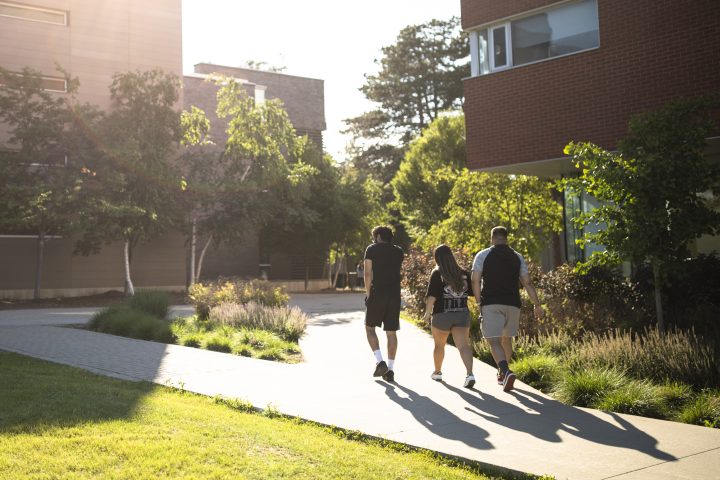The recent University of Waterloo stabbing that sent shockwaves across the country has prompted other Canadian universities to review their own security measures.

Two students and a professor were injured after a man showed up in class June 28 and drew knives after confirming it was a second-year gender studies class; police have described it as a “hate-motivated” attack.
Geovanny Villalba-Aleman, a 24-year-old recently graduated international student, faces three counts of aggravated assault, four counts of assault with a weapon and two counts of possession of a weapon for a dangerous purpose, as well as mischief under $5,000. He appeared in a Kitchener, Ont., court Tuesday morning, but his case has been postponed to July 25.
The violence has raised concern about an increase in crime on campus as post-secondary institutions across the country look for ways to keep students, faculty and staff safe.
“Following the University of Waterloo incident, UBC Safety and Risk Services reviewed our protocols to determine if there are any opportunities to improve our safety processes,” said Sam Stephens, director of campus security at the University of British Columbia Vancouver.
“We continually review our security protocols to ensure we are following best practices to support a safe environment on campus,” Stephens said in an emailed statement to Global News.
UBC’s annual campus security reports released last month showed an uptick in assaults at both the Vancouver and Okanagan campuses last year.

The University of Alberta has also seen an increase in overall security incidents on campus in recent months, with at least 444 crimes reported to date this year, according to a U of A spokesperson.
“While the current increases may not seem significant to some, we recognize that any incident can be worrisome to those that regularly use the space,” said Ross Neitz, U of A’s media relations strategist.

Get daily National news
Last year, there were 686 criminal incidents at the U of A campus, that included property crimes and crimes against persons, according to Neitz.
“We are currently exploring many avenues related to safety and security from those concerns being raised following this assault,” Verna Yiu, U of A’s interim provost said in June 30 statement released in response to the Waterloo stabbings.
“Some of these include looking into how instructor information is publicly posted, collaborating with those who teach and research in these areas to identify actions, and advancing conversations around restorative practices,” the statement read.
At the University of Toronto’s three locations, a total of 670 security incidents were reported and responded to last year, which ranged from breaking and entering and theft to sexual assault, criminal harassment and hate crime, according to data for their annual campus safety reports.
That was a 38 per cent jump compared to 2021 for the same types of incidents reported on all three campuses involving either the general public or members of the U of T community. The university was mostly offering online classes due to COVID-19 up until the fall semester that year, which meant there were fewer students on campus.
“We are deeply troubled by the vicious attack that took place … at the University of Waterloo, and we denounce hate and violence in all forms,” a U of T spokesperson said in an emailed statement to Global News last week.
“We regularly review our emergency response and communications systems to keep our campuses as safe as possible, and we routinely assess new or emerging concerns, working with community partners such as local police services, where appropriate,” the statement added.

In the aftermath of the Waterloo attack, the University of Saskatchewan (USask) said it is committed to providing a safe and welcoming learning environment for all students, staff and faculty.
From Jan. 1, 2022, to July 2023, USask protective services responded to 20 calls reporting assaults, 24 reports of breaking and entering, 45 reports of harassment, 100 reports of theft and conducted 19 arrests under warrant.
USask said it has one of the few dedicated peace officer groups in Western Canada that enhances the university’s ability to detect and address incidents on campus most often without police involvement.
“This can lead to a higher number of incidents reported relative to other universities, as we are able to respond to incidents within 500 meters of our campus in a timely manner,” a statement from USask emailed to Global News said.
Montreal’s McGill University said the safety and well-being of every member of its community always remain a top priority.
“We stand with members of our community who may be concerned that their teaching, research, or advocacy might heighten their vulnerability to such incidents,” said Claire Loewen, a McGill University spokesperson.
“Violence and discrimination of any form have no place in our society.”
— with files from The Canadian Press









Comments